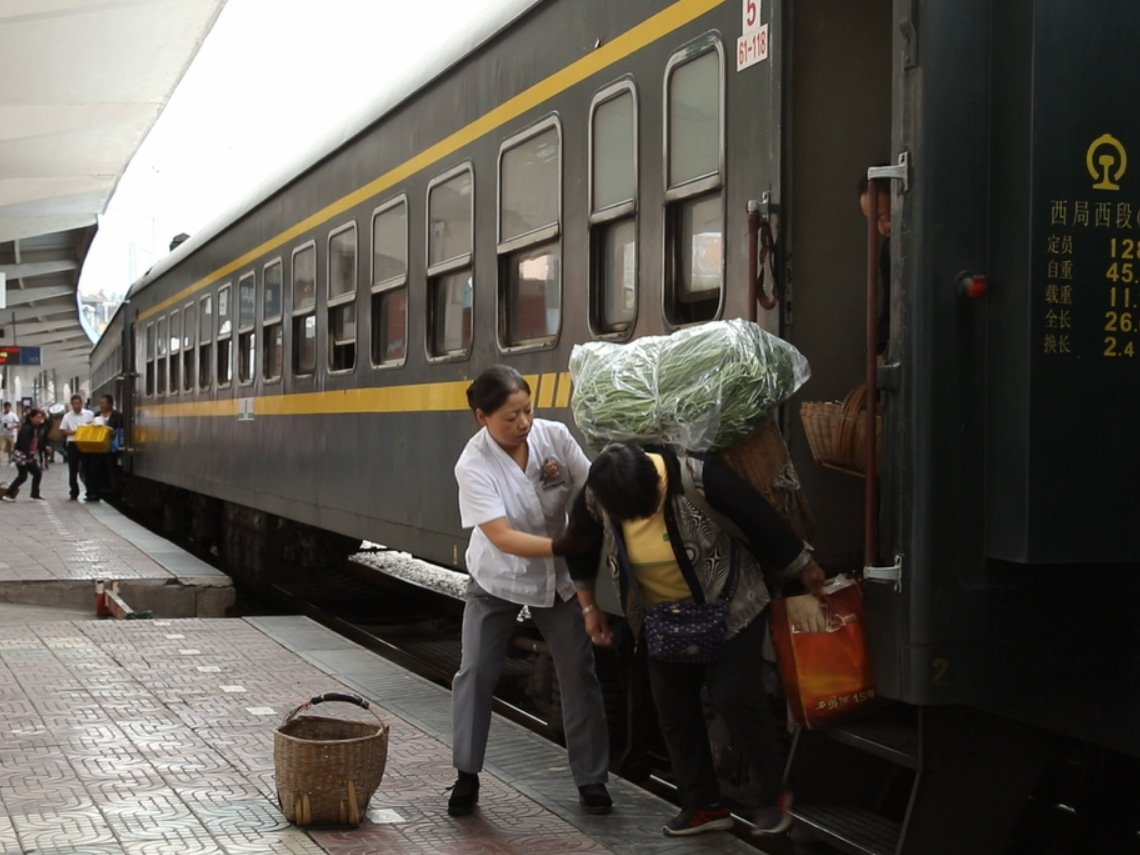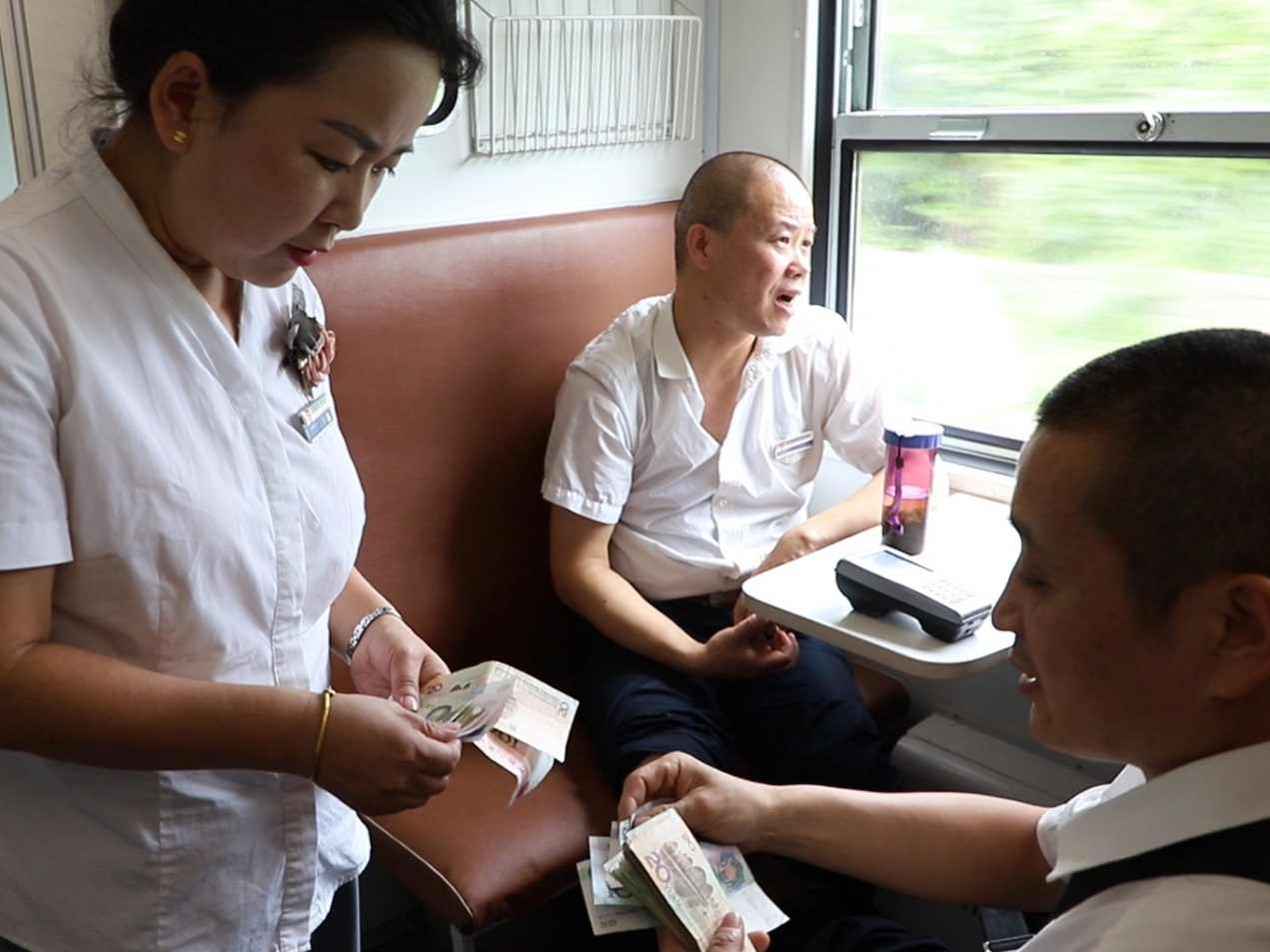

"I've enjoyed my five years working on the No. 6064," said Liu Fei, 49, a train attendant with 30 years of working experience.
This train has been running on the Baocheng Railway for 61 years. It passes through Shaanxi, Gansu and Sichuan provinces with 38 stations. From Baoji to Guangyuan, the whole journey takes an hour for high-speed train, but it takes 12 hours for this train, which is known as the "Qinling slow train."
The train has 13 crew members, and Liu is one of them. She gets up at 5:30 every morning and has to rush to the station before 6:30 to prepare food and water for the whole day. After the train sets off at 7:30 a.m., she not only cleans up, but also reminds the passengers to get off as well as provides medical services for urgent patients.

Liu Fei reminds the passengers to get off through radio broadcasting. /CGTN Photo
Liu has been working on the No. 6064 slow train since 2014, following her last job on the T56 express. Compared with express trains, slow trains are not as advanced, but they have a low price, with a fare of only 21.50 yuan for the whole journey.
As a poverty alleviation train, hundreds of passengers have to take it every day. People in remote mountainous areas take the train to carry agricultural products to the city to sell. And some students who study in towns and live in remote villages have to take the slow train to commute.
As a train conductor, Liu feels much happier on slow trains because she thinks they are filled with love, and the people on the trains tend to become friends over the long journey.

A passenger gets off the slow train. /CGTN Photo
Liu has a deep impression of Wang Xiaoqin, whom she acquainted in 2014, the year she began working on train No. 6064. Liu's first conversation with Wang was about environmental sanitation. Then one day in 2017, Wang suddenly fainted from hypoglycemia while taking the slow train.
After noticing the situation, Liu arrived immediately and gave her honey water. Since then, Wang has brought Liu eggs, pancakes and other gifts every time she rides the slow train. They now treat each other like family.

Liu Fei has a good relationship with passengers. /CGTN Photo
Liu's father once participated in the electrification construction of the Baocheng Railway. In addition, her husband is a railway electrician who works in the power supply section. Thus, she and her family have a great familiarity with slow trains.
For local passengers, slow trains can develop trade and send students to school. For crew members, the slow trains carry their precious memories and deep love.
Liu will retire next year. She said she will cherish her last days on the slow train. In the era of rapid transportation development, slow trains still play an important role in many people's lives.
(Gao Song is also the co-author.)

Copyright © 2018 CGTN. Beijing ICP prepared NO.16065310-3
Copyright © 2018 CGTN. Beijing ICP prepared NO.16065310-3